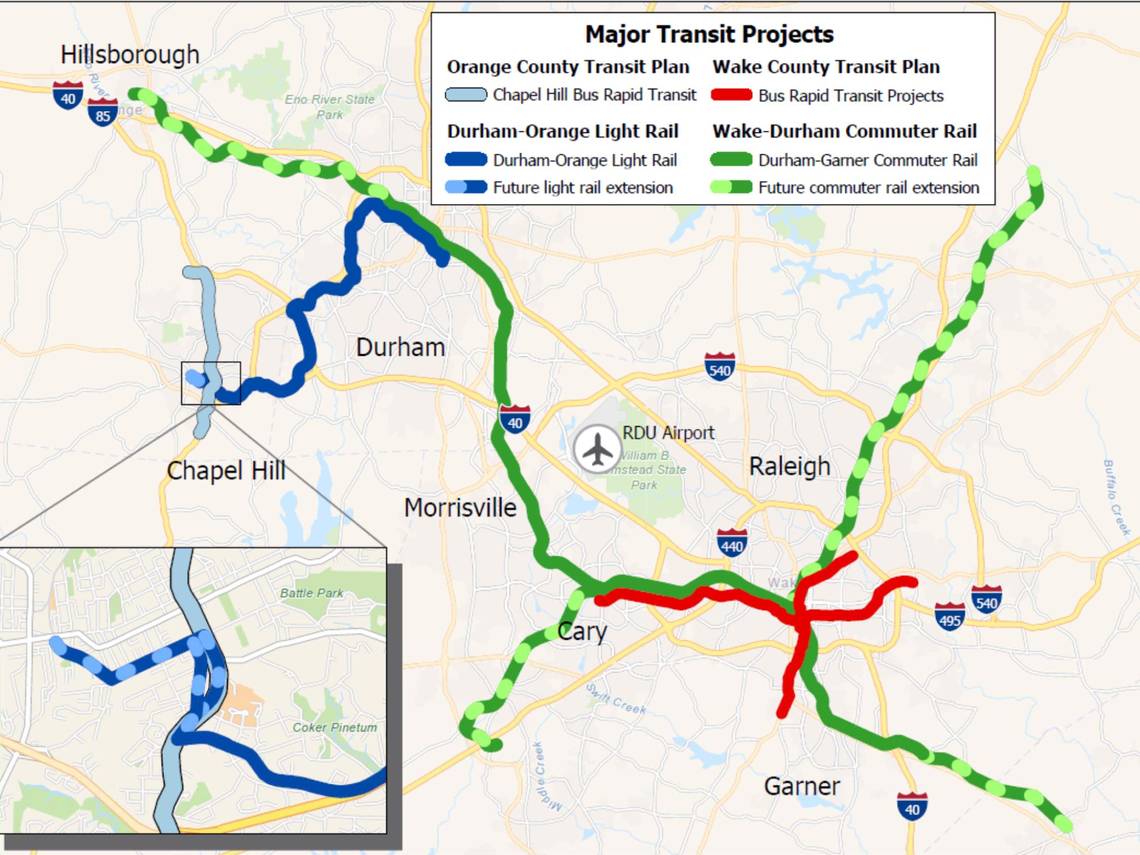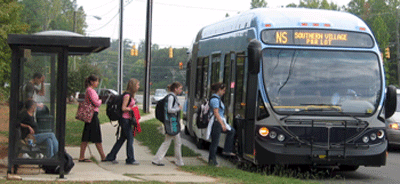Transit

As expected, on Tuesday night the Board of County Commissioners voted unanimously to discontinue the Durham-Orange Light Rail Transit project. After a failure of negotiations, this step formally discontinues the project and begins a process to reallocate the funds that had been allocated to the light rail project through an amended Orange County Transit Plan.
That process will involve lengthy conversations with community members and potential partners. A lot of time and effort, and difficult negotiation lie ahead. For me, it’s time to pause and consider what has been lost.
The June 29, 2016, "Off the Rails" INDY Week piece by David Hudnall, which discusses the Durham-Orange light rail transit project (DOLRT) is a poorly researched opinion piece that does a tremendous disservice to INDY Week readers, residents of Durham and Chapel Hill, and—most importantly—current public transit riders in Durham and Orange counties who stand to benefit greatly from a significantly enhanced bus and rail transit network with DOLRT at its core.
{Cross Posted from Chapel Hill News}

If you boarded a Chapel Hill Transit bus back in February, you might have been greeted by someone with a clipboard asking you to answer a few questions about your ride. The results of this survey were just released and include relevant and interesting findings as we think about the future of transit in our community.
These survey data tell us quite a bit about who rides Chapel Hill Transit. Most riders (88 percent) were somehow affiliated with UNC, and 93 percent of those surveyed were taking the bus to get to college or work. A majority (68 percent) ride the bus five days a week while another 21 percent use it three or four days a week.
At a work session earlier this month, the Chapel Hill Town Council received a report on the fiscal sustainability of Chapel Hill Transit. The report describes CHT's current situation as akin to “tale of two cities.” One the one hand the system has been enormously successful in attracting new ridership and on the other hand facing some fairly significant obstacles because of that sucess. The report identifies funding as the chief area of concern, noting that the urgent need for capital expenses mostly to help replace the agency's aging fleet.
In response to the meeting, a slew of stories appeared with headlines like "Chapel Hill Transit Could Start Charging For Bus Rides." That got me and a few of OrangePolitics' other editors thinking: what would happen if the system really were to start charging fares as a way to be more sustainable? After talking it over a bit, we came up with (at least) two potential issues:
Speaking to a sizeable crowd at Duke last Thursday night, Enrique Peñalosa, former mayor of Bogotá, shared his vision for and thoughts on “Democracy and the Quality of Urban Life.”
As mayor from 1998-2000, Peñalosa radically transformed the physical form of Bogotá. He worked to incorporate the city’s remote, illegally-constructed slums into the city by building new public spaces, parks, and pedestrian and bicycle connections. He implemented aggressive policies to limit car use by eliminating parking and creating dedicated bus lanes to improve public transit. He spoke at length during his talk about how the work he carried out as mayor was designed to make Bogotá a more inclusive, equal, and democratic city.
Pages
About Us
OrangePolitics is a not-for-profit website for discussing progressive perspectives on politics, planning, and public policy in Orange County, NC. Opinions are those of their authors. Learn more.
Community Guidelines
By using this site, you agree to our community guidelines. Inappropriate or disruptive behavior will result in moderation or eviction.
Zircon - This is a contributing Drupal Theme
Design by
WeebPal.



